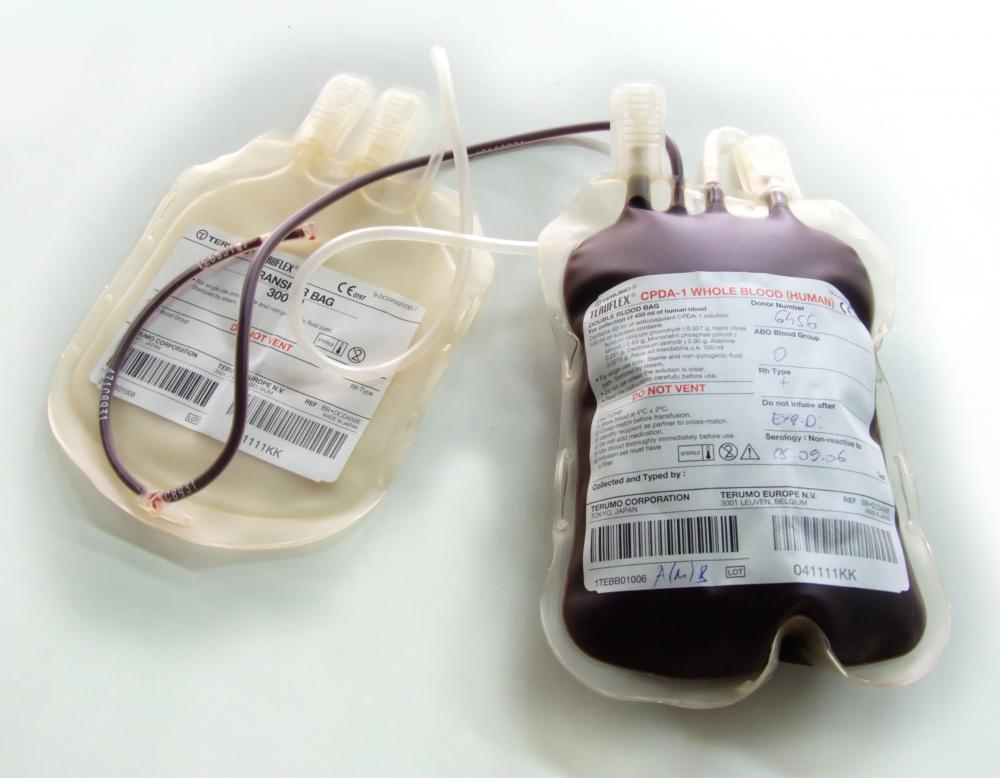At PracticalAdultInsights, we're committed to delivering accurate, trustworthy information. Our expert-authored content is rigorously fact-checked and sourced from credible authorities. Discover how we uphold the highest standards in providing you with reliable knowledge.
What Does an Immunohematologist Do?
An immunohematologist is a lab technician who performs tests related to blood transfusions to confirm that blood is safe for transfusion into a patient. These technicians are familiar with the interplay between antigens and antibodies that can make a transfusion unsafe. They work for hospitals, blood banks, clinics and other facilities that handle transfusions. Salaries might vary, depending on the region and levels of training.
One aspect of an immunohematologist's work involves testing incoming blood donations to type them. This allows the technician to sort blood by type for quick reference when a physician contacts the blood bank to order blood. Detailed typing that goes beyond the basic A-B-O and Rhesus blood group systems might be necessary and available in some regions where other blood group systems might be prevalent in the population and the lab wants to avoid potential transfusion reactions.

In an emergency when blood is immediately needed to treat a patient, the immunohematologist sends up the best possible match, such as a unit of type O-negative blood. Such units are least likely to cause a transfusion reaction in a patient who has an unknown blood type. When more time is available, the immunohematologist can check a unit of blood against a sample from the patient to check for potential antibody reactions that might cause a problem. In planning for surgery, for instance, the blood bank prepares typed and cross-matched blood that will be safe for use in the operating room.

Doctors can consult with an immunohematologist to discuss a planned transfusion procedure and to get advice. These medical technicians also can work with nurses and other personnel on topics such as developing a safe protocol for blood transfusions. They also might work in the field at blood drives and donation facilities, meeting with donors to perform intake interviews and make sure that they understand the risks and benefits of blood donation. Some also work in public outreach campaigns to encourage members of the community to consider blood donation.

Working as a medical technician or technologist can require a two- or four-year degree. It also is possible to enter the field of hematology as a physician or other doctoral degree-holder to study antigen-antibody reactions and learn more about blood transfusion and organ donation. This work requires more education because it involves research, development of new products and direct patient care. An immunohematologist might opt to complete general training, start work and later return to school for an advanced degree if the work seems interesting.
AS FEATURED ON:
AS FEATURED ON:













Discuss this Article
Post your comments